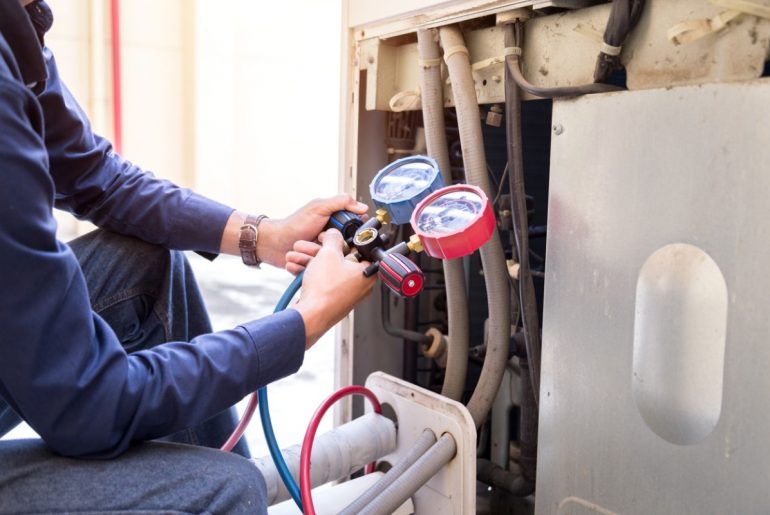If you’re entering the HVAC industry, as a service technician you’ll want to make sure you are equipped with the best tools for HVAC success, which range from the basic essentials to those that are nice to have but not necessarily mandatory. Whether you’re on a service call or doing routine maintenance, you need to make sure you have reliable and durable tools available to you at a moment’s notice in order to help get the job done quickly and efficiently.
Whether you are looking for Yellow Jacket products or Lennox systems, we’ve compiled the below HVAC technician tool list for your reference, so you are never left unprepared.
- HVAC Hand Tools
- 1. Hammers
- 2. Screwdrivers
- 3. Pliers
- 4. Tape Measure
- 5. Crescent Wrenches
- 6. Flashlight
- 7. Battery-Powered Drill
- 8. Pipe Wrench
- HVAC Safety Tools
- “The Should Haves” Essential Tools
- 9. Multimeter
- 10. Gloves
- 11. Ear Plugs
- 12. Safety Goggles (Safety Glasses)
- 13. Footwear
- 14. Tool Bag
- HVAC Specialty Tools
- “The Ones That Get The Job Done”
- 15. Thermometer
- 16. Reciprocating Saw
- 17. Manifold Gauge
- 18. Extension Cord
- 19. Caulking Gun
- 20. Vacuum Pumps
- 21. Core Removal Tool
- 22. Coil Fin Straightener
- 23. Filter Puller
- 24. Fuse Puller
- 25. HVAC Software
- Closing Thoughts
HVAC Hand Tools
“The HVAC Must-Have Tools”
1. Hammers
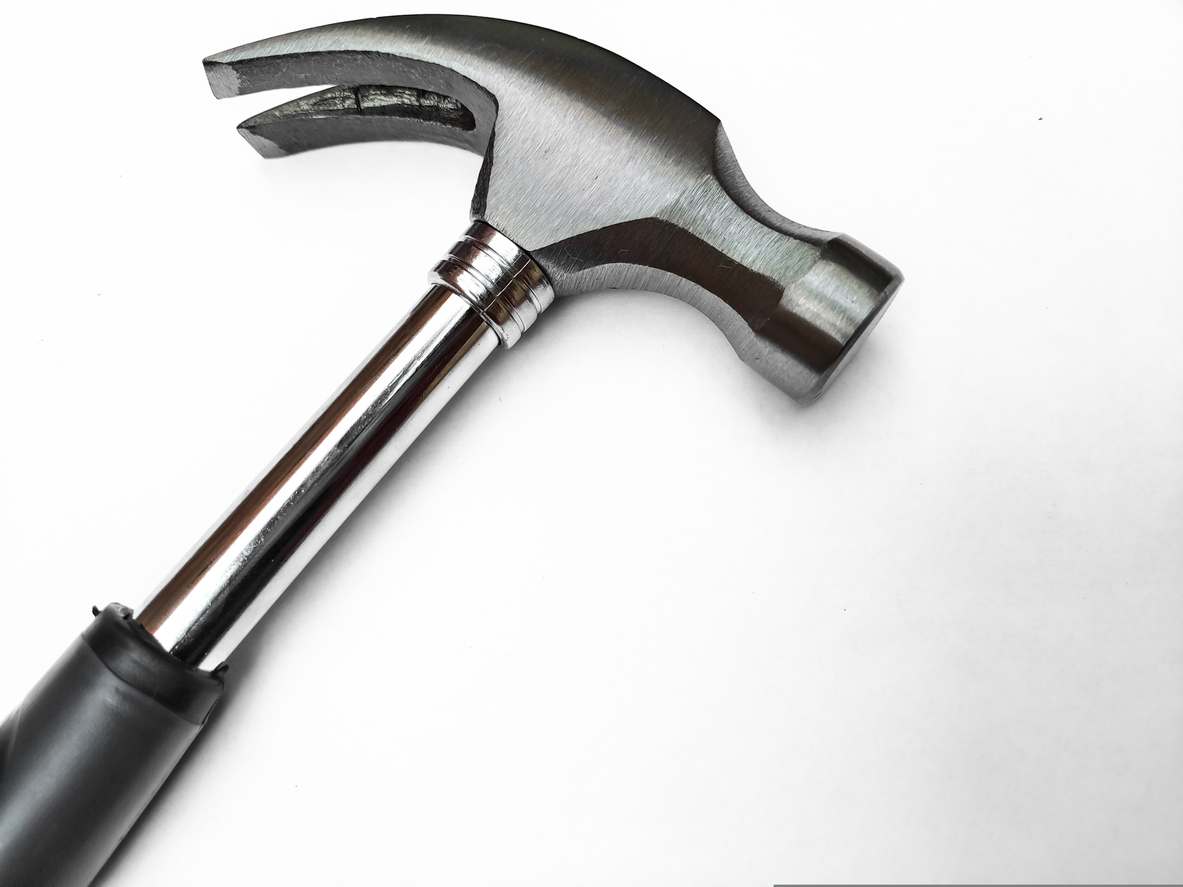
First on our list of HVAC tools is the ever-reliable hammer. HVAC technicians should always have a carpenter-style hammer to complete a variety of tasks. It is recommended to have a lightweight hammer to not weigh down your HVAC technician tool belt.
2. Screwdrivers
Continuing with the “Must Have HVAC Tools” list, no toolkit is complete without a solid set of screwdrivers. You’ll want a variety of screwdrivers, with different sizes and types, as you will be unscrewing and screwing a multitude of things (units, vents, thermostats, etc.). Lastly, make sure you use screwdrivers with insulated handles to protect you from electrical shock.
3. Pliers
A set of pliers is also crucial to have as an HVAC technician. The set of pliers should include wire strippers, needle-nose, linesman, channel-lock, and open-face pliers. Each type of plier has its own specialty; for example, needle nose pliers are used to grab wire while working on a thermostat. Be sure to get a set with insulated handles to protect yourself from electrical shock.
4. Tape Measure
Every HVAC technician should have a 25-foot tape measure. From measuring everything from furnaces to air conditioner units, it’s important that HVAC technicians are able to accurately read a tape measure.
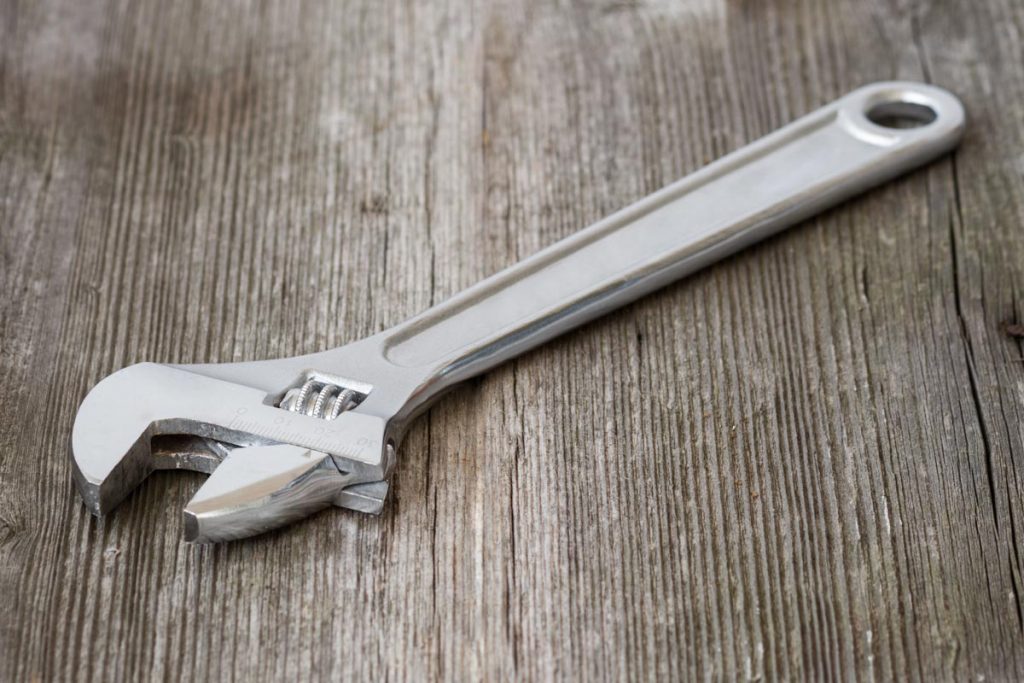
5. Crescent Wrenches
As part of our HVAC basic hand tools list, the next must-have for HVAC technicians is a set of crescent wrenches. Having a set of small, medium, and large wrenches will give you the flexibility needed to complete certain tasks.
6. Flashlight
Flashlights are basic but important for every HVAC technician to have. We suggest using a headlamp to free up your hands for what you’re working on.
7. Battery-Powered Drill
Cordless, battery-powered drills are extremely useful in the field for an HVAC technician. You’ll want a cordless drill that is reliable and durable, as you’ll be using it on a regular basis.
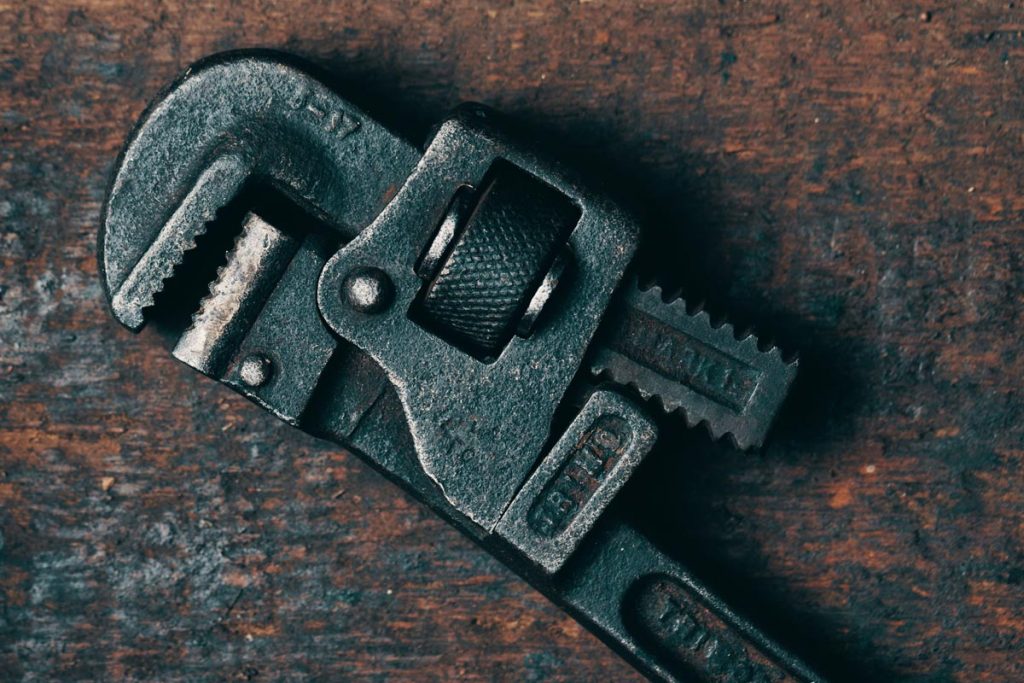
8. Pipe Wrench
Pipe wrenches (adjustable wrenches) are important for HVAC technicians as they allow you to secure natural gas and plumbing connections.
HVAC Safety Tools
“The Should Haves” Essential Tools
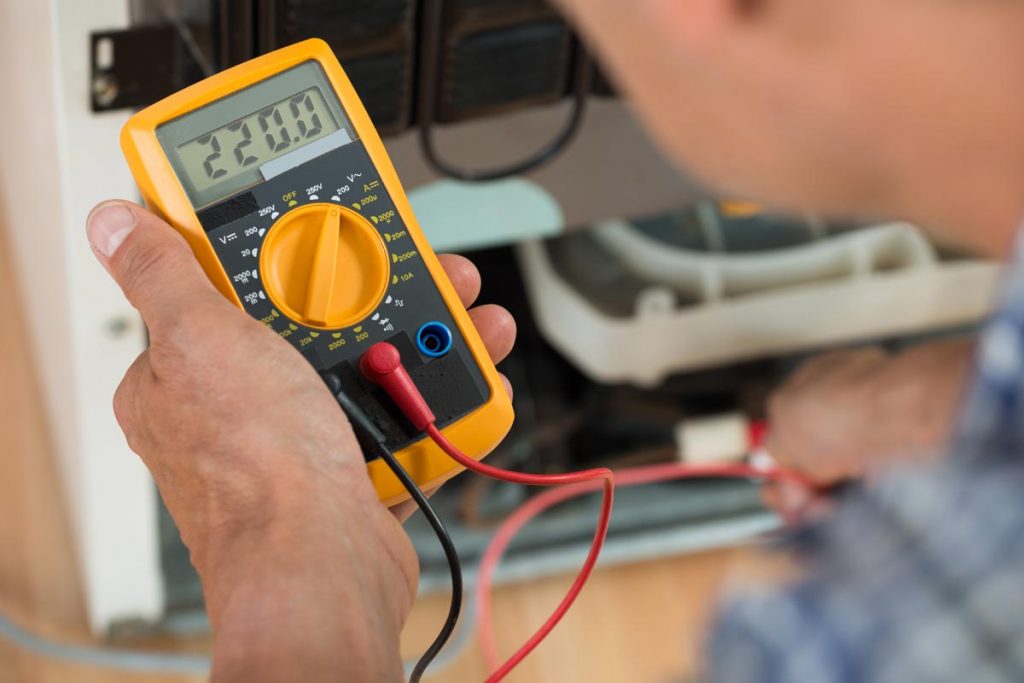
9. Multimeter
The multimeter is one of the most crucial HVAC technician safety tools. It checks for electrical current and notifies you if there is voltage present, preventing you from being electrocuted. You can use a multimeter as a safety device to detect electrical currents on wires, switches, or outlets.
10. Gloves
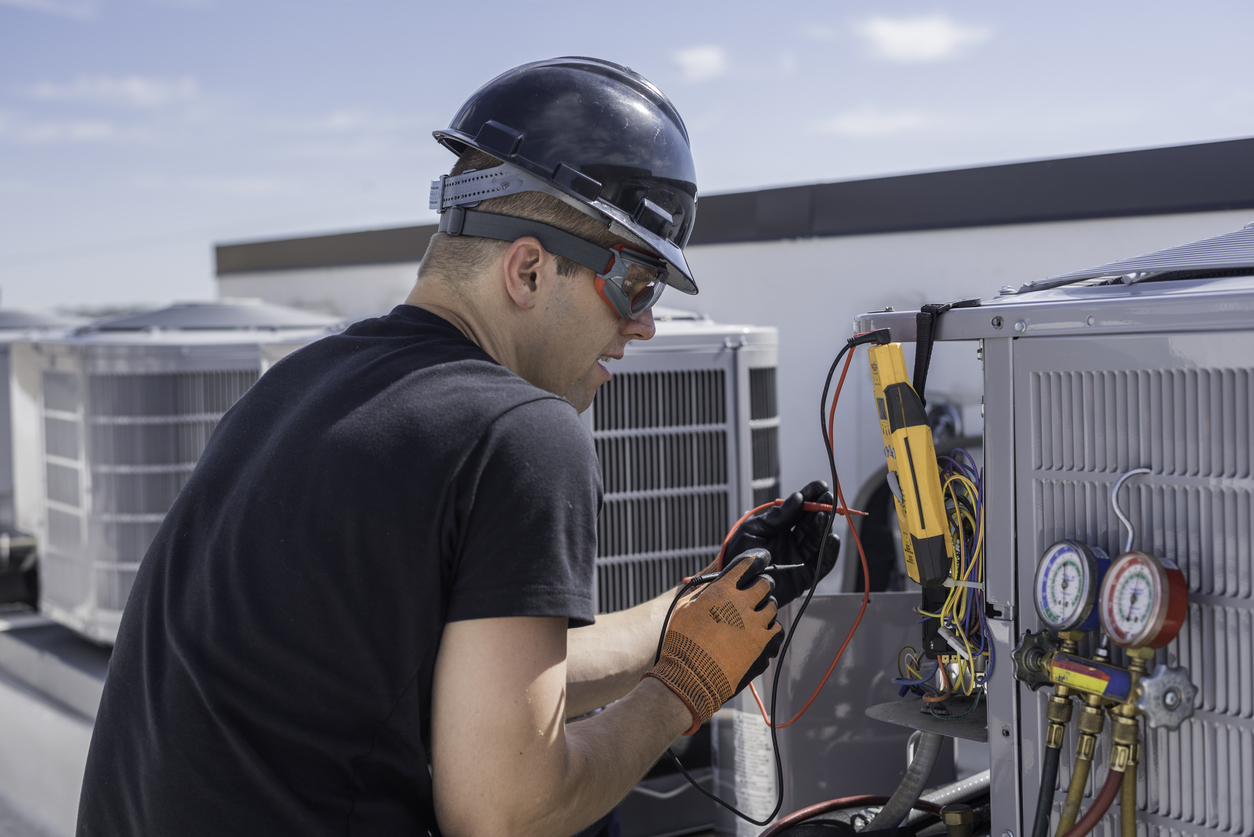
Being an HVAC system technician requires you to have durable and protective gloves, as you’ll have a very hands-on job. It’s also important to have a pair of gloves that allow you some flexibility so that you’re able to hold smaller tools and parts.
Get Started With Service Software!
11. Ear Plugs
Since you’ll be using power tools on a regular basis, be sure to protect your hearing with a solid pair of earplugs.
12. Safety Goggles (Safety Glasses)
Protect your eyes from dust and metal debris with a pair of safety goggles. It’s important to have accurate and detailed vision while working on the job, so taking steps to protect your eyes is always a smart move.
13. Footwear

Each job may have its own terrain, so be sure to have the proper footwear. It’s recommended to have a pair of heavy steel-toe work boots to protect your feet from a potential accident.
14. Tool Bag
A good tool bag should have multiple compartments and pockets to keep everything like HVAC core tools as well as additional tools like electric tools organized and easily accessible. Look for a bag that is made of durable material, such as heavy-duty canvas or nylon, to withstand the wear and tear of daily use.
HVAC Specialty Tools
“The Ones That Get The Job Done”
15. Thermometer
Temperature control and regulation is another important part of tools for HVAC technicians. You’ll want to make sure you select a handheld thermometer like a digital thermometer so that you’re able to follow air conditioning system regulations and satisfy the customer.
16. Reciprocating Saw
The best way to cut through most materials during an HVAC job is to use a Sawzall, or reciprocating saw. Unlike most duct knives or utility knives, you can use a reciprocating saw as a tubing cutter or to cut through drywall, sheet metal, pipes, old condensers, or wood.
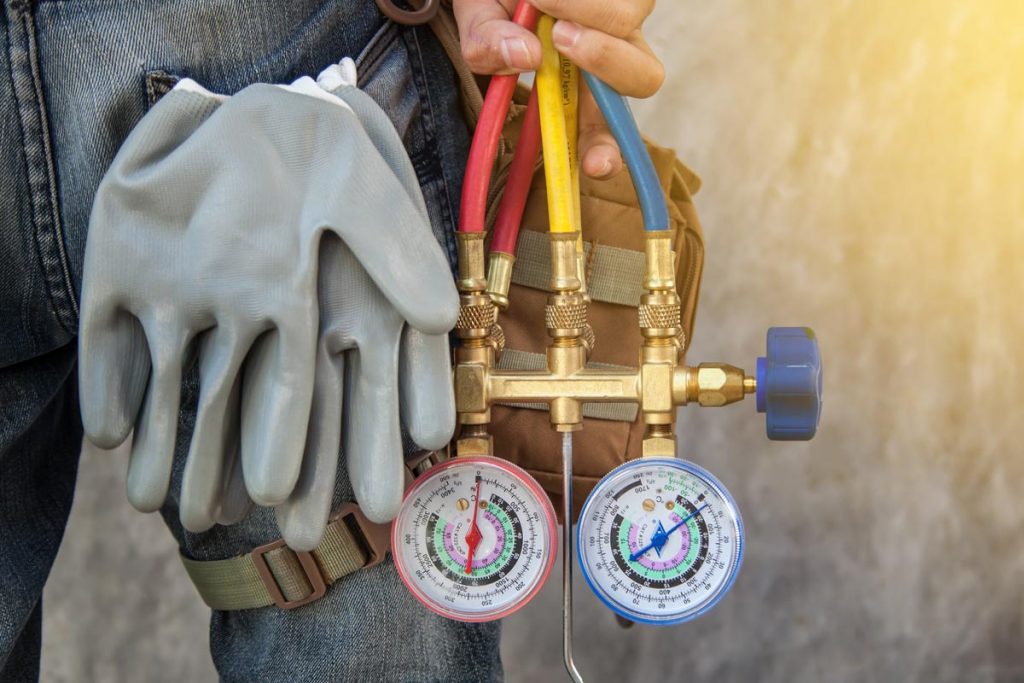
17. Manifold Gauge
One of the most used HVAC tools is the manifold gauge set. A popular brand for this set is Yellow Jacket which can be used as a gas leak detector or refrigerant leak detector during the removal of refrigerant and when charging an air conditioning unit.
18. Extension Cord
Extension cords are often an overlooked part of being an HVAC technician. When using tools that aren’t battery-powered, you’ll be glad you brought extension cords along with you.
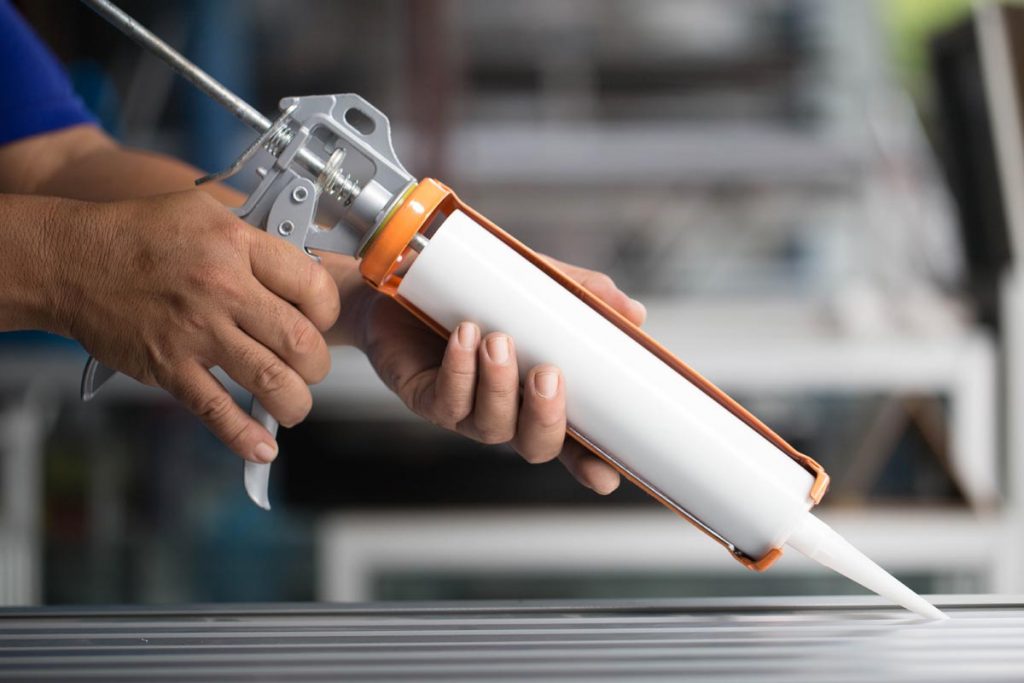
19. Caulking Gun
It’s recommended to purchase a dripless caulking gun. You can use a caulking gun to seal ducts and fill holes when necessary.
20. Vacuum Pumps
When on the job, you’ll often have to remove moisture from the lines, so that’s where the pumps will come into play.
21. Core Removal Tool
An essential piece of equipment for HVAC technicians, especially when working with refrigeration systems. This tool allows you to easily remove the valve core from an HVAC system without losing any refrigerant in the process.
22. Coil Fin Straightener
Over time, the fins on the air conditioner condenser coils of an AC unit can become bent or damaged, which can hinder airflow and reduce the unit’s overall performance. A coil fin straightener allows you to easily straighten out these fins, restoring proper airflow and maximizing the efficiency of the unit.
23. Filter Puller
A filter puller is a handy tool that allows HVAC technicians to easily and safely remove air filters from their housing units. This tool is especially useful for those hard-to-reach filters or filters that may be stuck due to dirt or debris buildup.
24. Fuse Puller
This handy tool allows you to safely remove fuses from their sockets without the risk of electrical shock or damage to the fuse itself. By using a fuse puller, you can easily replace blown fuses and restore power to the system quickly and efficiently.
25. HVAC Software
The best HVAC business software will help with easy-to-use features for drag-and-drop scheduling, dispatching, service, lead management/CRM, invoicing, and billing.
Partnering with ServMan by WorkWave
ServMan by WorkWave is a comprehensive ERP software designed specifically for field service businesses, offering a wide range of benefits that can greatly enhance efficiency and productivity. Here are some key advantages of using ServMan by WorkWave:
1. Streamlined Communication: Allows you to easily communicate with your clients, staff, and vendors through automated messaging features. This ensures that everyone is kept informed and up-to-date on important information.
2. Enhanced Scheduling: Create and manage schedules for your field services with ease. This helps you optimize your workflow and ensure that appointments are efficiently organized.
3. Customer Management: Provides a centralized platform for managing customer information, including contact details, service history, and preferences. This allows you to provide personalized service and build strong relationships with your clients.
4. Billing Automation: Offers billing automation features that help streamline the invoicing process, reduce errors, and ensure prompt payment. This saves you time and effort while improving cash flow for your field service business.
5. Reporting and Analytics: Provides valuable insights through detailed reporting and analytics tools. This allows you to track key performance indicators, identify trends, and make data-driven decisions to optimize your business.
Closing Thoughts
By investing in the right tools and software for your HVAC business, you can improve efficiency, boost sales, increase customer satisfaction, and ultimately grow your business. Consider incorporating these essential HVAC tools into your toolkit and exploring the benefits of partnering with ServMan by WorkWave to take your HVAC business to the next level. Ready to grow your business? Book a free demo today!




